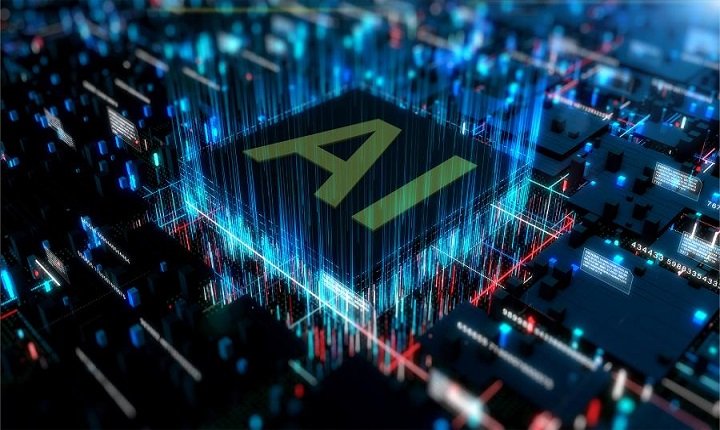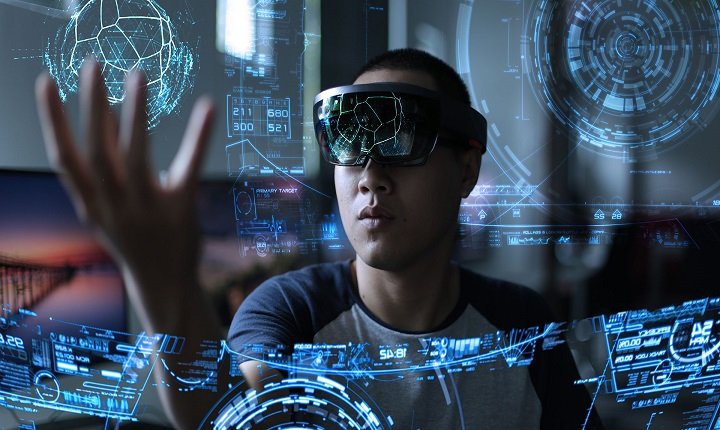
AI for Space Data Analysis have you ever pondered how researchers oversee to make sense of all the information collected from space missions? Space investigation has come a long way, and with each unused mission, a mountain of information is produced. But analyzing this endless sum of data can be dubious. This is where Manufactured Insights (AI) steps in to help.
AI is changing the amusement when it comes to space information examination. It can sort through enormous sums of data rapidly and precisely, making a difference researchers get it more approximately the universe. In this web journal post, we will plunge into how AI is utilized for space information examination, why it’s so vital, and how it might shape the future of space exploration.
What is Space Data? AI for Space Data Analysis

Before we get into how AI is utilized, let’s to begin with get it what space information is. When a lackey, telescope, or shuttle investigates space, it collects different sorts of data. This data can include:
Images of planets, stars, universes, and other ethereal bodies.
Measurements of things like temperature, attractive areas, and radiation.
Signals from removed planets or indeed other galaxies.
This information is fundamental for researchers since it makes a difference them learn more around the universe. In any case, the challenge is that space missions assemble so much information that analyzing it physically is about inconceivable. That’s where AI comes in.
How AI Makes a difference in Space Information Analysis
AI has the capacity to prepare and analyze gigantic datasets in a brief sum of time. Here’s how AI is making a distinction in space information analysis:
1. Picture Recognition
One of the greatest errands in space investigation is analyzing pictures. Shuttle and telescopes take endless pictures of space, and these pictures require to be considered carefully. AI can rapidly recognize designs, classify objects, and indeed spot inconsistencies that people might miss. For case, AI can offer assistance recognize unused planets, space rocks, or systems based on images.
NASA has as of now utilized AI to find exoplanets, which are planets that circle stars exterior our sun based framework. AI looks at the brightness of stars and identifies slight changes that might demonstrate the nearness of a planet.
2. Information Processing of AI for Space Data Analysis
Satellites and telescopes collect information each moment, driving to gigantic sums of data. AI can rapidly sort, organize, and channel through this information to discover the most important pieces for researchers to analyze.
For occasion, the European Space Office (ESA) employments AI to handle information from the Gaia shuttle, which has mapped over a billion stars in our universe. By utilizing AI, researchers can way better get it the structure of our world, its advancement, and indeed anticipate the future developments of stars.
3. Prescient Analytics
In space investigation, AI can show and foresee occasions like sun oriented flares or space rocks that might come near to Soil. This gives researchers a head begin in planning for such events.
Moreover, AI is moreover utilized in space climate forecast, which is significant for ensuring satellites and space travelers from hurtful sun based radiation.
The Significance of AI in Space Information Analysis
Now that we’ve investigated how AI makes a difference, let’s conversation almost why it’s so important.
1. Speed and Efficiency
One of the primary reasons AI is so profitable in space information investigation is its capacity to work quick. Analyzing space information physically might take a long time, but AI can do it in a division of the time. This implies researchers can make disclosures speedier and more efficiently.
2. Dealing with Huge Data
Space missions create a gigantic sum of information, and conventional strategies are not sufficient to handle this “big data.” AI calculations can filter through tremendous datasets, finding designs and experiences that would take people distant longer to uncover.
3. Superior Choice Making
With AI’s offer assistance, researchers can make superior choices based on the information. For illustration, AI can offer assistance choose where a shuttle ought to go following or what portion of the sky a telescope ought to center on. By analyzing information in real-time, AI gives analysts significant experiences to direct their missions.
Real-Life Applications of AI for Space Data Analysis
Let’s see at a few real-world cases of how AI is utilized in space missions.
1. NASA’s AI-Powered Exoplanet Discovery
In 2017, NASA made features when it found two modern exoplanets utilizing AI. By analyzing information from the Kepler Space Telescope, AI was able to spot unpretentious changes in the brightness of stars, signaling the nearness of planets circling them. planets exterior our sun based system.
2. ESA’s Gaia Mission
The European Space Agency’s Gaia mission is mapping the stars in our universe, and AI is a key device in this exertion. Gaia has captured information on over a billion stars, and AI makes a difference prepare this enormous sum of data. With AI’s offer assistance, researchers can track the developments of stars, get it the history of our world, and indeed foresee how it will evolve.
3. AI in Shuttle Navigation
AI is moreover utilized to offer assistance shuttle explore through space. For case, NASA’s Damages wanderers are prepared with AI that makes a difference them explore the surface of the planet, dodging impediments like rocks and cavities. AI makes a difference the wanderers make choices on their claim, which is vital since sending informational from Soil to Defaces takes a long time.
Challenges and Future of AI in Space Exploration
While AI is a effective device for space information investigation, it’s not without its challenges.
1. Information Complexity
Space information is profoundly complex and changed, which can make it troublesome for AI to analyze. Researchers require to guarantee that AI calculations are prepared to handle distinctive sorts of information, such as pictures, signals, and numerical measurements.
2. Believe and Accuracy of AI for Space Data Analysis
AI frameworks can make botches, and when it comes to space investigation, botches can be exorbitant. Researchers require to guarantee that AI is dependable and precise, particularly when it comes to making critical choices like recognizing space rocks or directing spacecraft.
3. Moral Concerns
There are moreover moral concerns approximately depending as well much on AI in space missions. For case, if AI makes choices without human input, there is a chance that those choices seem be imperfect. As AI gets to be more progressed, researchers require to strike a adjust between utilizing AI and keeping up human oversight.
Future Possibilities of AI for Space Data Analysis

Looking to the future, AI will likely play an indeed greater part in space investigation. As AI innovation makes strides, it seem be utilized for assignments like:
- Autonomous Shuttle: AI seem offer assistance shuttle work totally on their claim, without requiring steady informational from Earth.
- Mars Colonization: AI seem help in building territories on Damages, analyzing the planet’s environment to guarantee secure living conditions.
- Interstellar Travel: If humankind ever sets out on interstellar travel, AI will be pivotal in making a difference us explore and analyze information from far off star systems.
Conclusion
AI is revolutionizing the way we analyze space information, making it speedier and more proficient than ever some time recently. From recognizing modern planets to exploring shuttle, AI is playing a crucial part in the future of space investigation. As we proceed to investigate the stars, AI will be our consistent companion, making a difference us open the puzzles of the universe.
For those interested in learning more, investigating how space offices like NASA and ESA are joining AI in their missions will give important bits of knowledge into the future of space exploration.
FAQs:
1. What is AI?
Counterfeit Insights (AI) alludes to the recreation of human insights by machines, especially computer frameworks. It can perform errands that ordinarily require human insights, such as visual recognition, discourse acknowledgment, decision-making, and more.
2. How does AI offer assistance in space investigation?
AI makes a difference by analyzing tremendous sums of information rapidly, recognizing designs in pictures, foreseeing future space occasions, and helping shuttle in navigation.
3. Can AI find unused planets?
Yes, AI has as of now been utilized to find modern planets by analyzing information from telescopes like NASA’s Kepler Space Telescope.